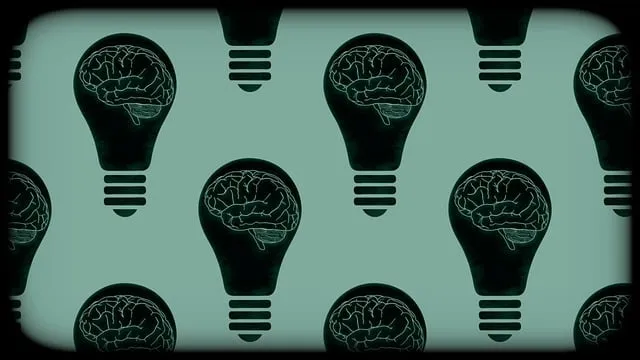Colorado Springs Kaiser Permanente mental health providers are leading the charge against mental illness stigma through multi-faceted initiatives. They normalize conversations with public awareness campaigns, personal stories, and educational workshops, empowering individuals to take control of their mental well-being early on. By integrating Emotional Intelligence, Cultural Sensitivity, and Mental Wellness Journaling Exercises, they foster empathy and create a supportive ecosystem where seeking help is comfortable. Their success is measured through patient engagement, satisfaction levels, and reduced perceived stigma, guiding future initiatives for continuous improvement in care quality.
Mental illness stigma remains a significant barrier to seeking help, but efforts to reduce it are gaining momentum. This article explores diverse strategies aimed at dismantling the walls of stigma surrounding mental health, including case studies from Colorado Springs Kaiser Permanente, known for its innovative approach to mental health support. We delve into understanding stigma’s root barriers, community education methods, healthcare provider techniques, and measurement of success, highlighting the crucial role of Colorado Springs Kaiser Permanente mental health providers in this ongoing revolution.
- Understanding Stigma: Barriers to Seeking Help
- Colorado Springs Kaiser Permanente's Approach to Mental Health Support
- Educating Communities: Breaking Down Stereotypes
- Strategies for Healthcare Providers in Reducing Stigma
- Measuring Success: Evaluating Impact and Continuous Improvement
Understanding Stigma: Barriers to Seeking Help

Stigma surrounding mental illness is a significant barrier to individuals seeking the help they need. Many people struggle with understanding and accepting that mental health challenges are just as real and treatable as physical ailments. This misconception often leads to embarrassment, fear of judgment, or even self-blame when someone experiences symptoms of depression, anxiety, or other mental health disorders. In Colorado Springs, Kaiser Permanente mental health providers have been at the forefront of stigma reduction efforts, aiming to change public perceptions through education and support.
Public Awareness Campaigns Development plays a crucial role in breaking down these barriers. By sharing personal stories, providing accurate information, and normalizing conversations about mental health, communities can foster an environment where individuals feel comfortable discussing their struggles openly. Self-esteem improvement techniques and Mental Wellness Journaling Exercises guided by professionals can also empower people to take charge of their mental well-being. Through such initiatives, Kaiser Permanente in Colorado Springs is not just offering treatment but also creating a supportive network that encourages early intervention and continuous care.
Colorado Springs Kaiser Permanente's Approach to Mental Health Support

Colorado Springs Kaiser Permanente has been at the forefront of mental health support, implementing innovative strategies to address the prevalent issue of mental illness stigma within their community. They recognize that breaking down barriers and fostering an environment of understanding is crucial for the well-being of individuals seeking care. Therefore, they’ve adopted a holistic approach, integrating Emotional Intelligence into their practice. This involves training their mental health providers to recognize and respond to the unique emotional needs of patients, thereby enhancing the overall therapeutic experience.
By promoting Inner Strength Development, Kaiser Permanente aims to empower individuals with coping mechanisms and resilience against mental illness stigma. Their efforts include group therapy sessions, educational workshops, and community outreach programs that encourage open conversations about mental health. Through these initiatives, they strive to create a supportive ecosystem where individuals feel comfortable seeking help, ultimately contributing to successful mental illness stigma reduction efforts.
Educating Communities: Breaking Down Stereotypes

In Colorado Springs, Kaiser Permanente mental health providers have been at the forefront of stigma reduction efforts through comprehensive community education initiatives. By hosting workshops and seminars, they aim to dispel common stereotypes associated with mental illness. These educational programs often focus on raising awareness about various conditions, their symptoms, and effective treatment options. One innovative approach involves interactive sessions that encourage open dialogue, helping to normalize conversations around mental health.
The strategies employed include Social Skills Training, Self-Awareness Exercises, and Self-Care Routine Development for Better Mental Health. These activities foster empathy and understanding among community members, breaking down barriers and promoting a culture of support. Through such initiatives, Kaiser Permanente seeks to empower individuals affected by mental illness while encouraging early intervention and continuous care.
Strategies for Healthcare Providers in Reducing Stigma

Mental illness stigma reduction is a multifaceted endeavor, and healthcare providers play a pivotal role in this process. At Colorado Springs Kaiser Permanente, mental health providers employ various strategies to foster an environment of understanding and acceptance. One effective approach is integrating Cultural Sensitivity in Mental Healthcare Practice, ensuring that each patient receives care tailored to their unique background and experiences. This involves comprehensive training on provider cultural competency, enabling them to navigate diverse cultural perspectives and beliefs surrounding mental wellness.
Moreover, healthcare providers can encourage patients to engage in Mental Wellness Journaling Exercises, providing guidance on documenting and reflecting on personal mental health journeys. Such exercises not only promote self-awareness but also serve as a tangible tool for patients to share their stories, challenging stereotypes and fostering empathy among the general public. By combining these initiatives with evidence-based practices, Colorado Springs Kaiser Permanente mental health providers are contributing significantly to stigma reduction efforts while enhancing the overall quality of care.
Measuring Success: Evaluating Impact and Continuous Improvement

Evaluating the success of mental illness stigma reduction efforts is crucial to understanding their impact and guiding future initiatives. At Colorado Springs Kaiser Permanente, mental health providers employ various strategies to measure progress. This includes tracking patient engagement in programs aimed at fostering positive thinking and self-care routine development for better mental health. By analyzing participation rates, satisfaction levels, and changes in perceived stigma before and after these interventions, the team can assess the effectiveness of their approaches.
Continuous improvement is a key aspect of this evaluation process. Regular reviews allow providers to adapt their methods based on what’s working and what needs refinement. This iterative approach ensures that mental illness stigma reduction efforts remain relevant, engaging, and ultimately successful in creating a more accepting and supportive environment for individuals facing mental health challenges.
Mental illness stigma reduction is a multifaceted effort that requires collaboration between healthcare providers, communities, and educational institutions. As demonstrated by Colorado Springs Kaiser Permanente’s innovative approach to mental health support, creating inclusive environments and providing accessible resources can significantly encourage individuals to seek help without fear of judgment. By implementing strategies tailored for healthcare providers and measuring success through continuous evaluation, we can foster a more compassionate society where mental well-being is prioritized. Through ongoing education and broken down stereotypes, we move towards a future where everyone has the courage to address their mental health concerns.






